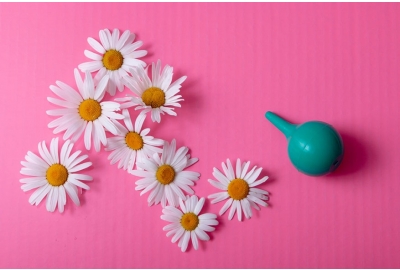
4 Expert-Recommended Alternatives to Douching

Few women’s health topics have drummed up as much controversy as douching. Though women have been using vaginal irrigation devices for centuries, they’re now considered an intimate care no-no. Their popularity dates back to the mid-18th century when they were used as a (very ineffective, we might add) form of birth control in addition to a tool for personal hygiene. But this is one case where long-used does not equal time-tested.
Why Douching Is Off the Table
Douching — a word derived from the French word for “soak” — is a method of cleaning the interior of the vagina with a mix of water and a cleaning agent such as vinegar or soap. When using a douching device, a tube is inserted into the opening of the vagina and a spraying mechanism distributes the solution upward into the vagina. While the practice is meant to rid the vagina of odors, menstrual blood, and germs, it instead adds in unnecessary bacteria and compounds that can cause more harm than good.
Over the past few decades, medical professionals have increasingly begun to warn against the practice of douching and using soap inside the vagina, citing an array of complications. “The vagina is a self-cleaning oven and excessive cleaning (douching) can significantly alter the normal microbiome of the vagina and cause irritation, abnormal vaginal discharge, and even infections,” says Dr. Karyn Eilber, CEO and Co-Founder of GLISSANT and Associate Professor of Urology and Obstetrics and Gynecology at Cedars-Sinai Medical Center.
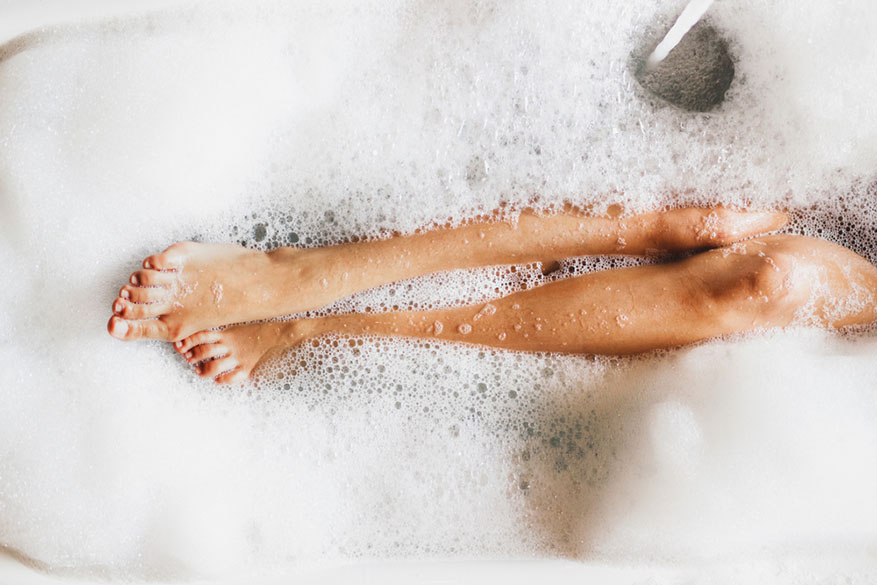
According to Dr. Kimberly Langdon, OB/GYN and MD, douching also puts you at a greater risk of serious complications, including sexually transmitted diseases and birthing issues. “The fluid and chemicals wash out and kill the healthy microbiome — and increase the risk of developing bacterial vaginosis — which increases the risk of becoming infected with STDs,” says Dr. Langdon. “Bacterial vaginosis also increases the risk of premature births.”
Although douching is largely unnecessary and even dangerous, it’s not hard to see why some women seek out ways to refresh, especially when experiencing hormonal changes due to menopause, pregnancy, or simply daily life. There’s a clear link between menopause and body odor, but it’s important that women know exactly how to tackle these changes.
Menopause and Body Odor: 4 Things to Keep in Mind
Alternatives to Douching
You may have noticed that the best feminine care products typically come with a warning: “for external use only.” That’s because many products can disrupt the pH and bacterial harmony inside the vagina. But what’s the alternative? There are a few things you can do to address unpleasantries down below, whether you’re experiencing everyday odors or vulvar changes in menopause.
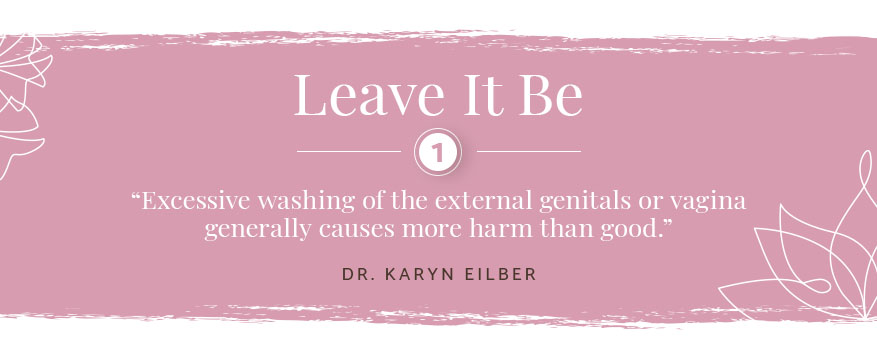
- The Best Alternative: Leave It Be — The experts say that even gently washing the interior of the vagina with the wrong products is considered douching and can disrupt the healthy microbiome of the vagina. “Excessive washing of the external genitals or vagina generally causes more harm than good,” says Dr. Eilber. The best alternative to douching is to let your vagina work as it should — like a self-cleaning oven. Rinsing with warm water in the shower once a day is OK and can keep things fresh.
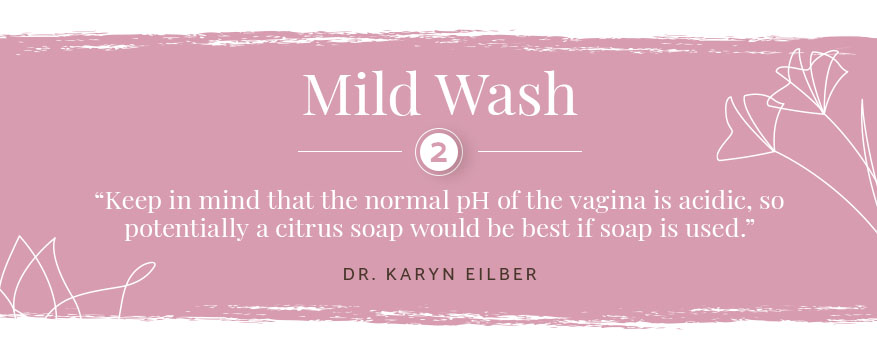
- On Occasion: Mild Wash — Using a gentle feminine wash like the Rael Natural Foaming Feminine Wash can help refresh, control odors and prevent vaginal dryness, but it’s crucial that you choose one that contains no harmful ingredients and helps balance the pH. “Keep in mind that the normal pH of the vagina is acidic, so potentially a citrus soap would be best if soap is used,” says Dr. Eilber. Look for products specifically formulated to keep the vagina at a healthy pH and ones that avoid harsh chemicals or ingredients that could cause inflammation.
Shop The Rael Natural Foaming Feminine Wash Here
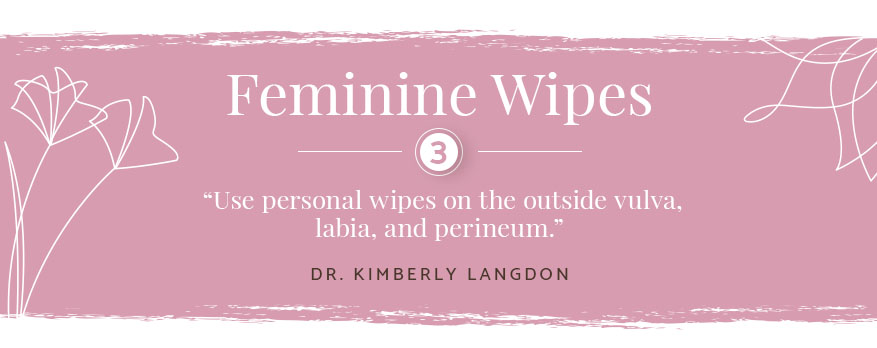
- Secret Weapon: Feminine Wipes — Using gentle feminine wipes is a convenient way to refresh the vaginal area without disrupting the microbiome, but you have to be careful with product selection and use here, too. “Use personal wipes on the outside vulva, labia, and perineum,” says Dr. Langdon. Be sure to use a wipe that won’t get rid of your body’s healthy bacteria, including those that are hypoallergenic, fragrance-free, and free of any irritating chemicals.
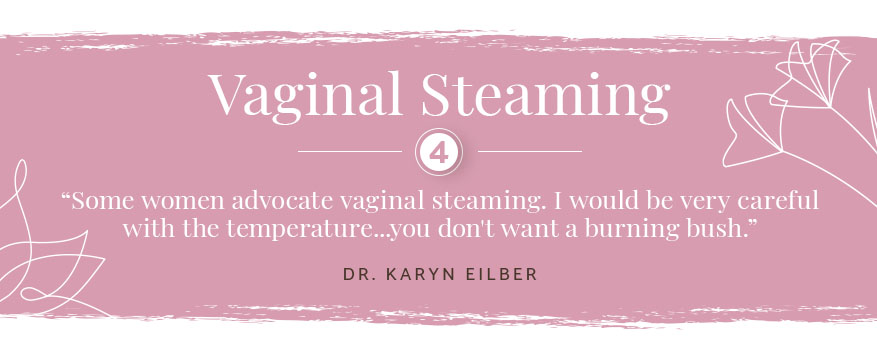
- Proceed with Caution: Vaginal Steaming — “Some women advocate vaginal steaming,” says Dr. Eilber. Vaginal steaming, also known as yoni steaming, is the practice of using steam, sometimes enhanced with herbs, to clean the vaginal tissue and provide healing benefits. Gentle steaming with water only at a low temperature may be safe. “I would be very careful with the temperature...you don't want a burning bush,” says Dr. Eilber.
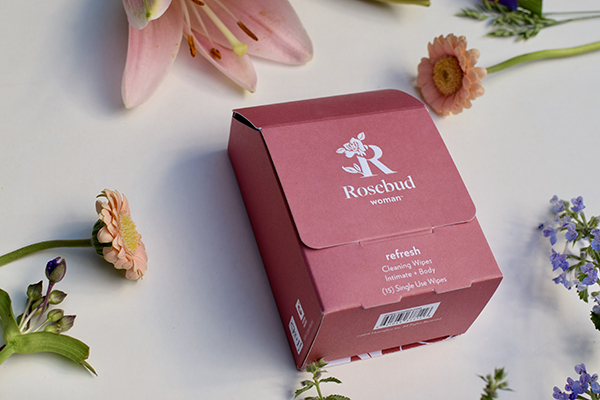
Featured: Rosebud Refresh Intimate Cleansing Wipes
Takeaways
The old-fashioned way of cleaning the vagina with a douche is a good way to throw your vaginal health off course. Instead, opt for the safe alternatives listed above. These options work with the body’s incredible self-cleaning abilities to keep you comfortable and smelling fresh with much less risk.
Browse All Intimate Self Care Products
Image Credits
Natalia Kopylcova/Shutterstock.com
Breslavtsev Oleg/Shutterstock.com